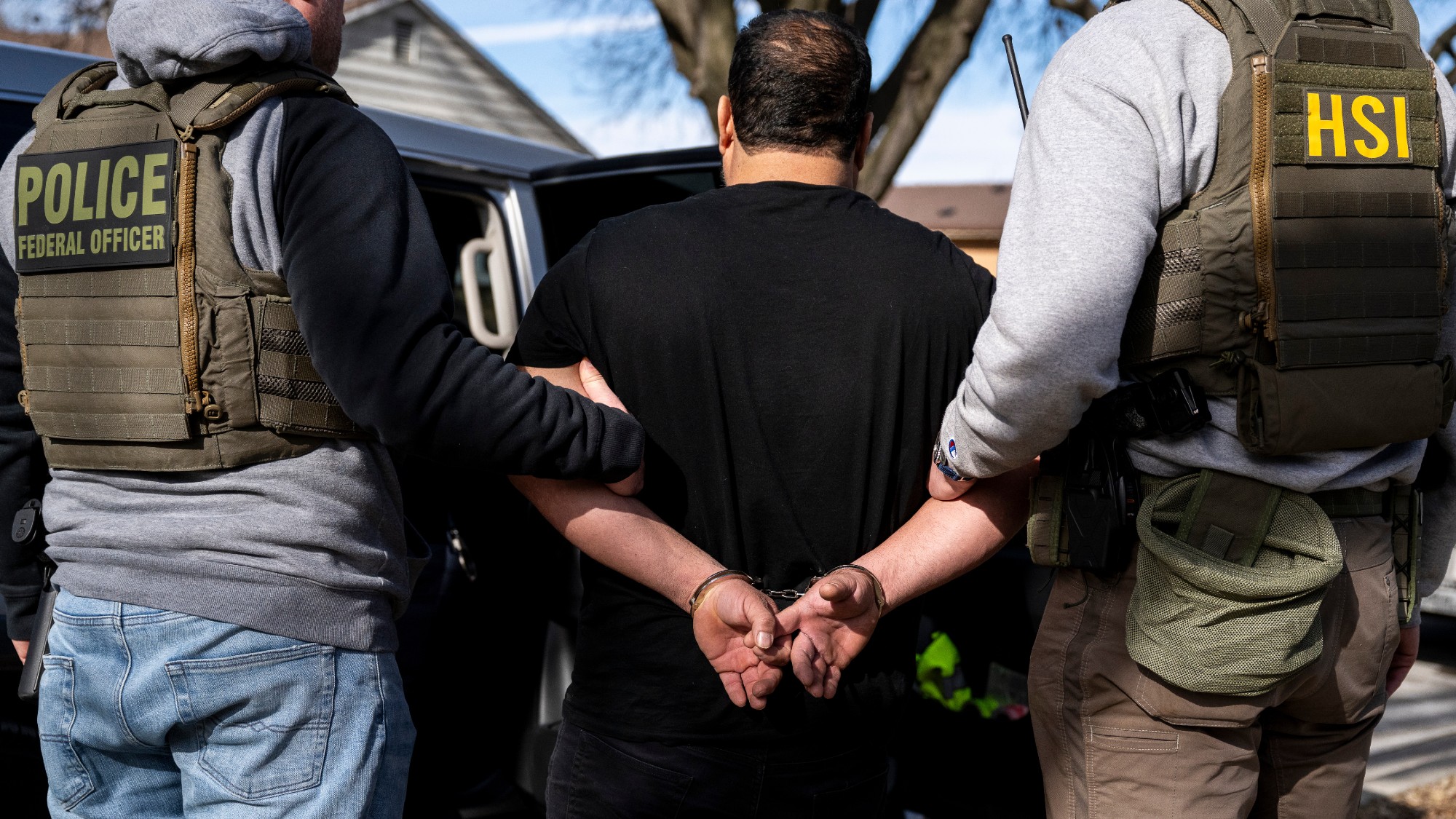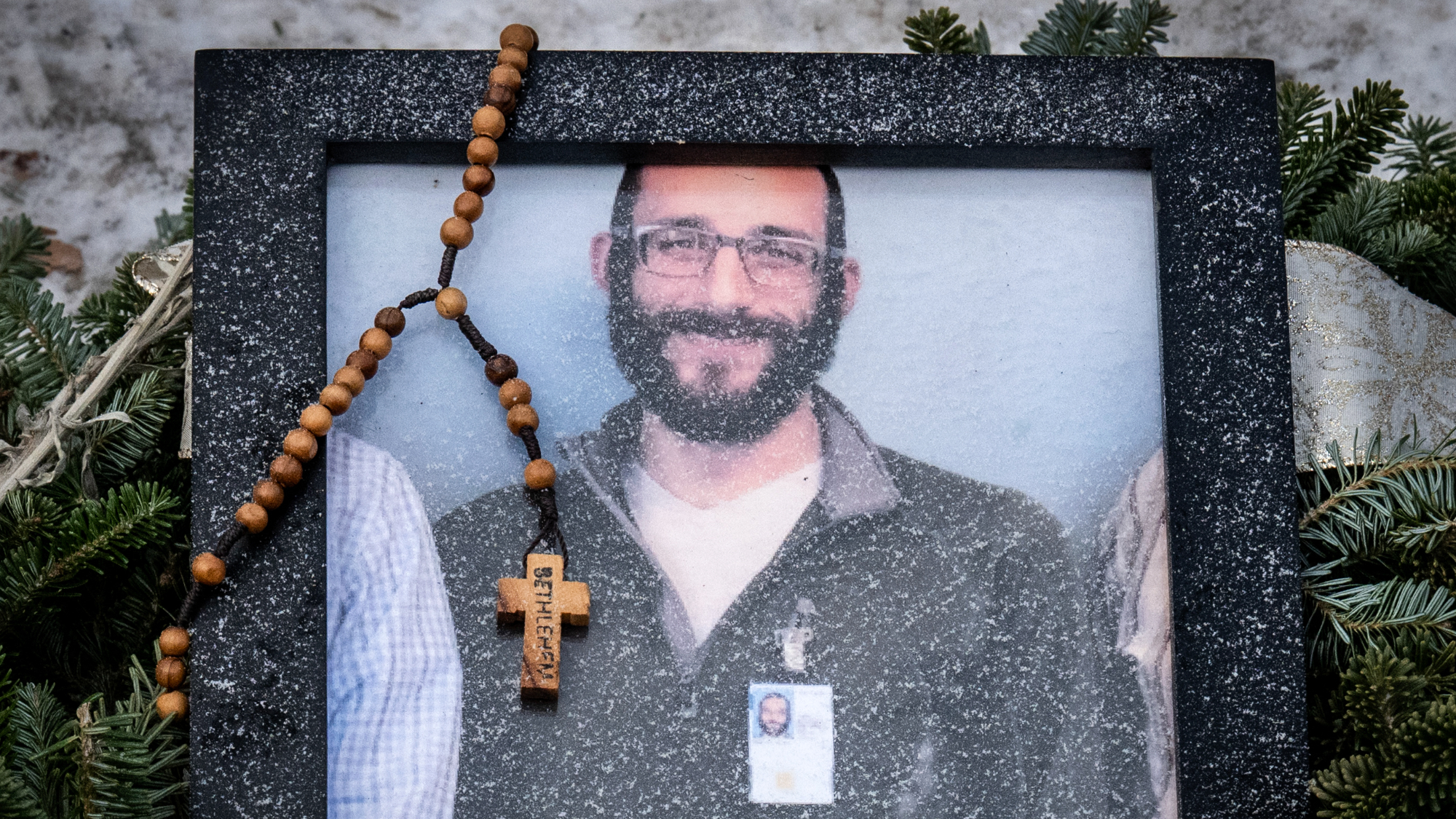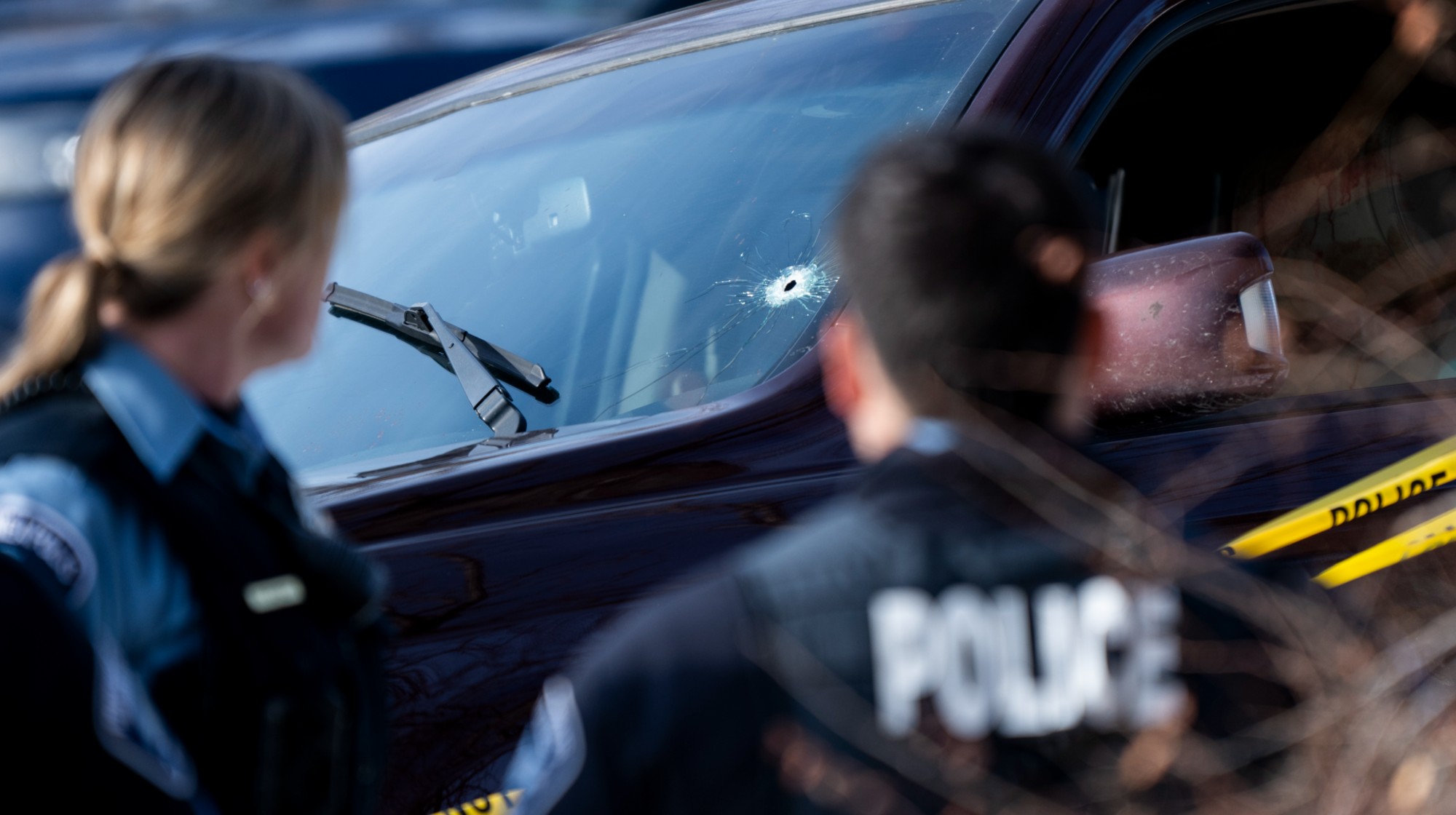Ice: America's controversial immigration enforcement agency
Trump's federal agents labelled as 'terrorists' amid criticism of heavy-handed arrests and detention conditions

A free daily email with the biggest news stories of the day – and the best features from TheWeek.com
You are now subscribed
Your newsletter sign-up was successful
Protests aiming to block immigration enforcement raids in Los Angeles have led to scenes of disorder across the city, with Donald Trump ordering the deployment of the National Guard despite the objections of California governor Gavin Newsom.
The unrest has been sparked by the actions of "Ice", the controversial federal agency tasked with carrying out the president's controversial crackdown on undocumented migrants.
What is Ice?
US Immigration and Customs Enforcement (Ice) was created in 2003 in the wake of the 9/11 terrorist attacks to improve national security by merging elements of the former US Customs Service and the Immigration and Naturalization Service.
The Week
Escape your echo chamber. Get the facts behind the news, plus analysis from multiple perspectives.

Sign up for The Week's Free Newsletters
From our morning news briefing to a weekly Good News Newsletter, get the best of The Week delivered directly to your inbox.
From our morning news briefing to a weekly Good News Newsletter, get the best of The Week delivered directly to your inbox.
It is a federal law enforcement agency overseen by the Department of Homeland Security (DHS), and currently employs more than 20,000 personnel across more than 400 offices, with an annual budget of around $9 billion (£6.6 billion). Ice is distinct from US Customs and Border Protection, a separate DHS entity that is focused on security along the country's borders and at other points of entry, such as airports.
The official Ice website summarises its primary mission as upholding "US immigration law at, within, and beyond our borders".
This responsibility is divided between two major components within the agency. Enforcement and Removal Operations targets undocumented immigrants considered "public safety threats", as well as "individuals who have otherwise violated our nation's immigration laws". Homeland Security Investigations is responsible for "investigating, disrupting, and dismantling transnational criminal organisations (TCOs) and terrorist networks that threaten or seek to exploit the customs and immigration laws of the US".
What powers does it have?
Ice has broad powers to arrest and detain any non-citizen who is in the US without legal permission, including foreign students whose visas are revoked.
A free daily email with the biggest news stories of the day – and the best features from TheWeek.com
Its powers are not "absolute", however, said Professor Rose Cuison-Villazor, from the Center for Immigrant Justice at Rutgers University, on The Conversation. For example, non-citizens must be notified in writing that they are being processed for a removal proceeding and have the right to legal representation. And ultimately, "an immigration judge, and not Ice, determines if a non-citizen should be deported".
However, unauthorised immigrants who have recently arrived in the US can be deported without appearing before a judge under an exception called the expedited removal process. The process was previously only applied to those who had arrived illegally in the US within the last two weeks, but in January Trump expanded the exception so that undocumented migrants who cannot prove they have been in the US for more than two years are subject to removal without due process.
Ice has long prioritised removing non-citizens convicted of criminal offences. But since Trump came to office in January there has been a major expansion of its scope and powers, in line with an administration that "sees all undocumented immigrants as criminals", said CNN.
This shift includes relaxing guidelines for carrying out immigration raids in "sensitive" areas such as churches, hospitals and schools. Another "key difference now is that if Ice targets a criminal and that person is with another undocumented immigrant, they, too, could be arrested".
Ice is also ramping up partnerships with state and local police and the US military. In January, said CNN, it was announced that Ice agents would oversee tens of thousands of migrant detainees sent to the US naval base at Guantanamo Bay in Cuba.
Why is it so controversial?
In 2023, following a three-year legal battle with the government, NPR released a "trove" of more than 1,600 pages of previously secret inspection reports written by experts hired by the DHS' Office for Civil Rights and Civil Liberties.
The reports relate to two dozen Ice facilities across 16 states inspected between 2017 and 2019. They found evidence of "'negligent' medical care (including mental health care), 'unsafe and filthy' conditions, racist abuse of detainees, inappropriate pepper-spraying of mentally ill detainees and other problems that, in some cases, contributed to detainee deaths".
Ice had an average of more than 46,000 detainees during the first half of May, which is "above its budgeted capacity", said The Associated Press. Despite these numbers, Stephen Miller, the "key architect of Trump’s immigration policy", has set a goal of 3,000 arrests a day, a "huge challenge with current funding" and inadequate facilities.
The agency has also frequently been criticised as disproportionately heavy-handed in its raids, which often resemble military operations, complete with tactical gear and assault rifles. Last week, acting director Todd Lyons denied accusations of excessive force after masked and heavily armed agents raided an Italian restaurant in San Diego using tear gas. In response to the incident, city councillor Sean Elo-Rivera called Ice enforcement officers "terrorists". "This isn't safety," he said. "It's state-sponsored terrorism."
-
 Political cartoons for February 16
Political cartoons for February 16Cartoons Monday’s political cartoons include President's Day, a valentine from the Epstein files, and more
-
 Regent Hong Kong: a tranquil haven with a prime waterfront spot
Regent Hong Kong: a tranquil haven with a prime waterfront spotThe Week Recommends The trendy hotel recently underwent an extensive two-year revamp
-
 The problem with diagnosing profound autism
The problem with diagnosing profound autismThe Explainer Experts are reconsidering the idea of autism as a spectrum, which could impact diagnoses and policy making for the condition
-
 Maxwell pleads 5th, offers Epstein answers for pardon
Maxwell pleads 5th, offers Epstein answers for pardonSpeed Read She offered to talk only if she first received a pardon from President Donald Trump
-
 Demands for accountability mount in Alex Pretti killing
Demands for accountability mount in Alex Pretti killingSpeed Read Pretti was shot numerous times by an ICE agent in Minneapolis
-
 Death in Minneapolis: a shooting dividing the US
Death in Minneapolis: a shooting dividing the USIn the Spotlight Federal response to Renee Good’s shooting suggest priority is ‘vilifying Trump’s perceived enemies rather than informing the public’
-
 FBI bars Minnesota from ICE killing investigation
FBI bars Minnesota from ICE killing investigationSpeed Read The FBI had initially agreed to work with local officials
-
 Trump pardons crypto titan who enriched family
Trump pardons crypto titan who enriched familySpeed Read Binance founder Changpeng Zhao pleaded guilty in 2023 to enabling money laundering while CEO of the cryptocurrency exchange
-
 The trial of Jair Bolsonaro, the 'Trump of the tropics'
The trial of Jair Bolsonaro, the 'Trump of the tropics'The Explainer Brazil's former president will likely be found guilty of attempting military coup, despite US pressure and Trump allegiance
-
 Trump lambasts crime, but his administration is cutting gun violence prevention
Trump lambasts crime, but his administration is cutting gun violence preventionThe Explainer The DOJ has canceled at least $500 million in public safety grants
-
 Insects and sewer water: the alleged conditions at 'Alligator Alcatraz'
Insects and sewer water: the alleged conditions at 'Alligator Alcatraz'The Explainer Hundreds of immigrants with no criminal charges in the United States are being held at the Florida facility